Can anyone chant Lalitha Sahasranamam?
Lalitha Sahasranamam, a sacred stotra that unfolds the thousand names of the Maa Lalitha, resonates with devotees across the globe. But a question often arises: is this transformative practice accessible to everyone? Drawing wisdom from the Shastras, we explore the essence of the Lalitha Sahasranamam and the power of chanting deity names, ultimately revealing – Yes, anyone can embark on this transformative journey!
Rooted in Ancient Wisdom
सर्वज्ञा सर्वेश्वरी सर्वानन्दा त्रिपुरसुन्दरी।
यास्याः स्वरूपं न जानाति स एव मूढमतिः॥
Shree Lalitha Tripurasundari is omniscient, the supreme ruler, the embodiment of all bliss. One who does not understand her true form is indeed a fool.
शक्तिः शिवस्य परमा त्रिपुरसुन्दरी जगन्मयी।
सर्वान् कामान् वरदा सर्वपापहरा च सा॥
Lalitha Tripurasundari is the highest Shakti of Shiva. She is the embodiment of the universe, the bestower of all desires, and the destroyer of all sins.
त्रिपुरा सुन्दरी साक्षात् परब्रह्म स्वरूपिणी।
अनादि अनन्ता चैव सर्वेश्वरी त्रिलोचनी॥
Lalitha Tripurasundari is the embodiment of the supreme Brahman itself. She is without beginning and without end, the ruler of all.
अखण्ड ज्योतिर्मयी सर्वमङ्गलमयी च सा।
सर्वज्ञानमयी चैव सर्वेश्वरी त्रिपुरसुन्दरी॥
She is the embodiment of unbroken light, the embodiment of all auspiciousness. She is also the embodiment of all knowledge and the supreme ruler.
अष्टादशभ भुवनानां कारणं परमेश्वरी।
त्रिपुरसुन्दरी साक्षात् सर्वमन्त्रस्वरूपिणी॥
Lalitha Tripurasundari is the cause of the eighteen worlds. She is the supreme goddess and the embodiment of all mantras themselves.
Legend recounts that sage Agastya, received this stotra. Agastya is believed to have been bestowed with the Lalitha Sahasranamam directly by Lord Hayagriva, an embodiment of supreme knowledge depicted with the head of a horse. This potent stotra, with its thousand names, unveils the multifaceted essence of the Divine Shakti, Lalitha, offering devotees a pathway to commune with her immense power and grace.
Power of Names: Unveiling the Naam Stotra
नामस्मरणमात्रेण पापं नाशं प्राप्नोति हि।
मनःशान्तिं च लब्ध्वा च सुखं चैव लभते नरः॥
Simply by remembering the names, a man attains the destruction of sin. He also gains peace of mind and happiness.
नामस्मरणाद् भवति सर्वसिद्धिः।
लभते च मनुष्यः परमं पदम्॥
Through the remembrance of names, all accomplishments are attained. A man also attains the highest abode.
नामस्मरणाद् भवति चेतसो निर्मलत्वं।
ततः समता दर्शनं च भवति हि॥
Through the remembrance of names, the mind becomes pure. Then, the vision of oneness arises.
न तपः पूजनं नास्ति न च यात्रा न चागमः। न च होमः न च दानं नान्यः कश्चिद् धर्मः कदा।
यथा नित्यस्मरणं देव्याः सर्वमङ्गलमूर्तये॥
There is no austerity, no worship, no pilgrimage, no study of scriptures, no fire sacrifice, no charity, or any other dharma as powerful as the constant remembrance of the Divine Mother's names.
The Lalitha Sahasranamam falls under the category of a naam stotra. Unlike a bija mantra, a naam stotra is a collection of names associated with a specific deity. Each name within the Lalitha Sahasranamam is not just a word; it’s a powerful mantra, a sacred sound formula imbued with the essence of the Shakti. By chanting these names with devotion, devotees aren’t simply reciting syllables; they are invoking specific qualities and energies associated with Maa Lalitha. Each name is a doorway to a specific aspect of the Divine Mother’s limitless potential, and by chanting them with devotion, practitioners can cultivate qualities like compassion, wisdom, inner strength, and peace.
Universality of Naam Mantras
Every deity in the Hindu pantheon has associated naam mantras (name mantras). These mantras are inherently different from bija mantras, which often require initiation (diksha) from a qualified guru. Naam mantras, on the other hand, are generally considered open to all. Their simplicity and accessibility lie in the very nature of their composition – they are the names of the divine. Just as anyone can call out to a loved one, anyone can chant the names of a revered deity.
Benefits of Chanting Naam Mantras
Chanting naam mantras, like those found in the Lalitha Sahasranamam, offers a multitude of benefits for the practitioner. Here are a few:
Connecting with the Divine: Chanting naam mantras fosters a powerful connection with the deity. By chanting the names of Lalitha, devotees connect with her boundless compassion, nurturing energy, and transformative power.
Inner Transformation: Each name within the Lalitha Sahasranamam embodies a specific quality. By chanting them with devotion, practitioners can cultivate these qualities within themselves. This can lead to personal transformation, fostering qualities like wisdom, strength, and inner peace.
Spiritual Growth: The act of chanting itself is a form of meditation. It requires focus and mindfulness, ultimately contributing to spiritual growth and a sense of inner calm.
Fulfilling Desires: Many devotees chant naam mantras with the intention of fulfilling their deepest desires. The potent energy of the names is believed to attract positive circumstances and blessings.
Lalitha Sahasranamam: A Universal Practice
The Lalitha Sahasranamam, with its collection of powerful naam mantras, is a practice open to all. Regardless of background, faith, or spiritual experience, anyone can embark on this transformative journey by chanting the names of the Divine Mother Lalitha. Whether seeking inner peace, invoking blessings, or fostering a deeper connection with the divine feminine, the Lalitha Sahasranamam offers a powerful tool for spiritual growth and transformation.



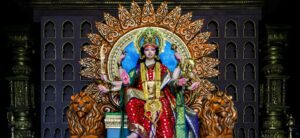
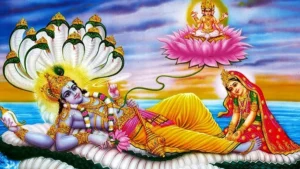
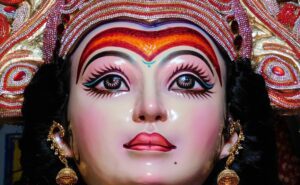
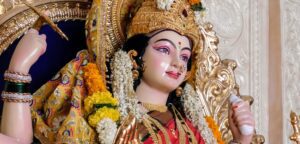
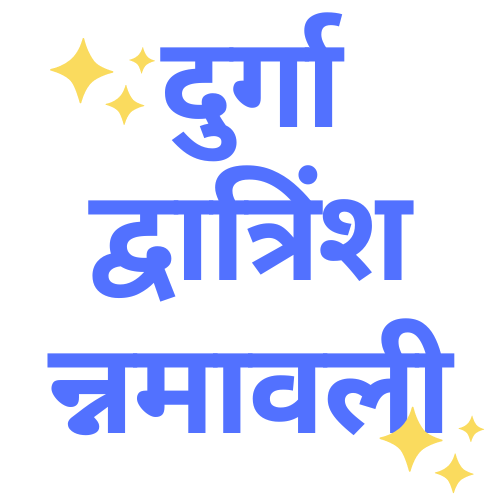


108 Names of Maa Durga